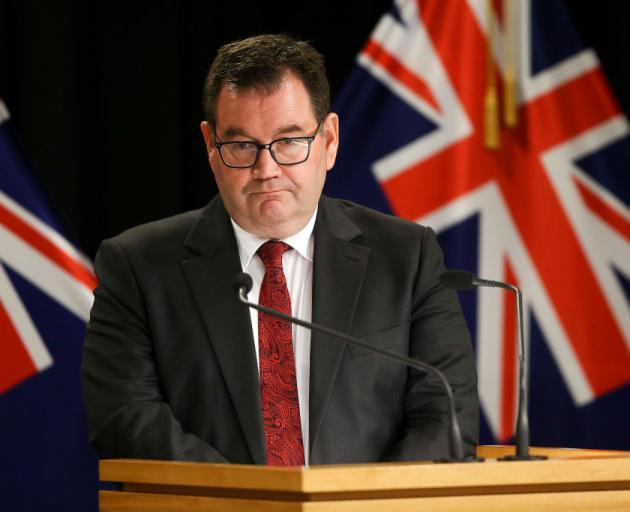
As part of the commitment to reduce debt incurred from the Covid-19 pandemic, the Government has told public sector workers earning more than $60,000 that they will only get a bump in pay in "exceptional circumstances", while those on more than $100,000 will not get a cent for at least the next three years.
Finance Minister Grant Robertson said as businesses had to make big decisions as they worked to recover from the devastation of Covid, so did the Government need to cut its cloth to fit.
"Our responsible economic approach means the Government is faced with choices about where new spending is targeted."
That is, on the surface, a good call.
It remains a sobering fact that New Zealand debt is predicted to reach $190 billion - or nearly 47% of GDP - by 2025. It now sits at more than $100 billion, or 32.6% of GDP, up from about $60 billion in a year thanks to Covid. That debt will need to be managed - and reduced - in the coming years, and the only way to do that is by earning more or spending less.
Swingeing cuts are not in this Government’s playbook, so it is about "striking a careful balance", as Mr Robertson said in a pre-Budget talk on Tuesday.
The minister has asked his colleagues to look at all areas of Covid spending to make close to $1 billion in savings that can be announced in the May 20 Budget.
Public Service Minister Chris Hipkins said any increases in public sector wages would be targeted at lower-paid employees, making up 25% of the sector. Again, that sounds like an eminently fair call.
The argument against this decision is that, inevitably, it will hurt people who have already been through a difficult year.
As Public Service Association national secretary Kerry Davies told The New Zealand Herald, border and MIQ personnel were examples in the sector of people who had done "the hard work required to push Covid-19 out of this country" and after 12 existing months of a pay freeze would be "told to swallow it for another two years".
Davies said the median salary for a PSA worker was $59,000, and public servants were more likely to rent than most New Zealanders, so the increase in the cost of living would make it a double whammy.
We have sympathy for that argument, as indeed we do for all sectors facing the same issue. If a "careful balance" is to be found, it is important the workers do not find themselves at the wrong end of the scale.
AND ANOTHER THING
They took their sweet time but organisers of the Indian Premier League have finally seen sense and put the twenty20 cricket tournament on hold indefinitely.
The bigwigs running one of the world’s glitziest sporting events hummed and haahed as India slipped into a state of Covid-19 pandemic crisis, but eventually they have made the right call.
We are naturally concerned for the 10 New Zealanders, including Black Caps and Sunrisers Hyderabad captain Kane Williamson, involved in the IPL, though it is understood none has tested positive, and all will be able to smoothly head to either New Zealand or the UK.
But thoughts now need to be with India, and that nation’s huge challenge to get ahold of the virus.
India has recorded more than 20 million cases, and reported more than 222,000 deaths. While other countries make progress thanks to the vaccine roll-out, India has just recorded its highest daily death toll since the start of the pandemic.
Coronavirus, not cricket, needs to be its priority.
Comments
"...businesses had to make big decisions as they worked to recover from the devastation of Covid..."
Covid didn't cause businesses to struggle & fail, the government lock downs did.
Did the government ever take the much publicised pay cut, or was that just aspirational...?
Businesses received public money in subsidies.
The government is making second-class employees out of it's workforce. A year ago it dished out millions or billions to private business free across the board when business should carry reserves so the wealthy Farmers shop owners and the Queenstown bungy jump owners banked megabucks compared to the average public servant. Yet, the pressure came on the public servants to rise to the challenge of Covid and it also falls on the medical staff, in other areas such as to the challenge of cancer treatments in Otago - it hits the individual public servant, asked to rise and to continue to perform. Now the government dissuades more people from seeking public service work, it dissuades those already doing their up most to keep doing so. The government has targeted one group of society to bear the brunt of the economic tightening in so doing it makes a second-class tier of workers frozen into their pay rates for the next three years. Where will house prices be, rates and health systems. I am appalled - the see the public service jobs to much as servants and not as public orientated workers doing their best for across the board society.
Well, there is no cause for Police to put themselves in harm's way.












